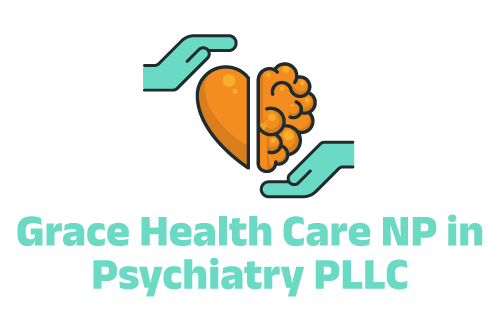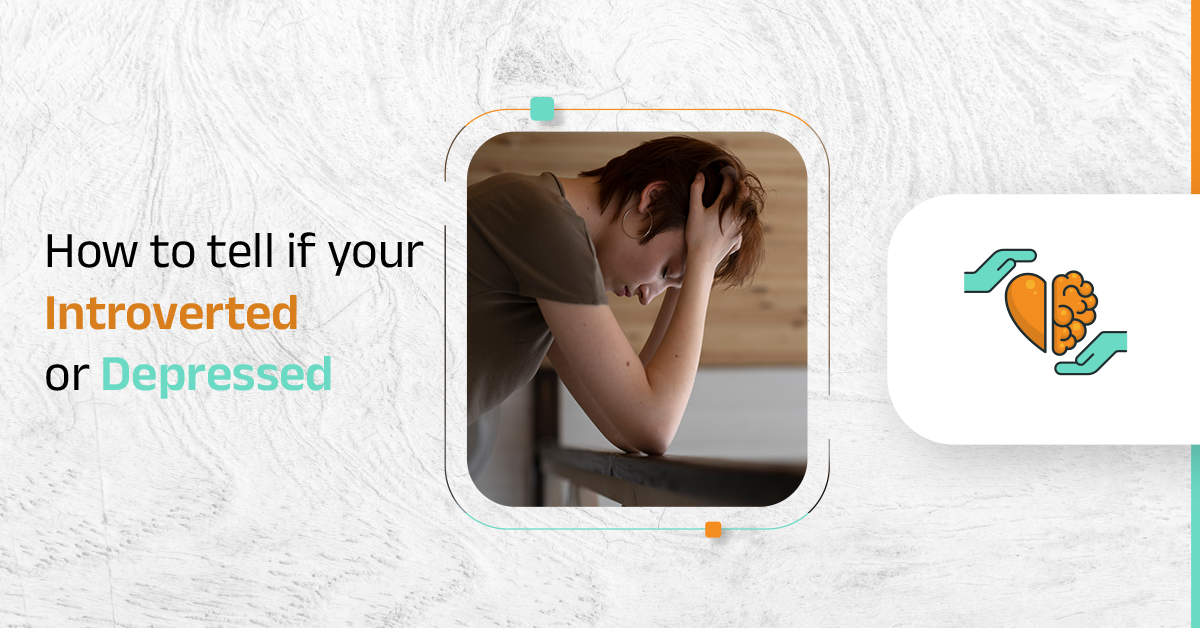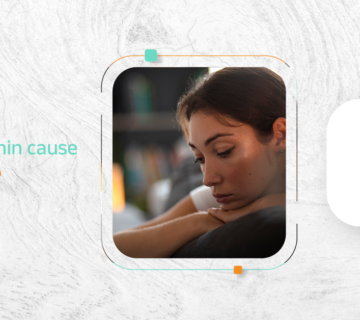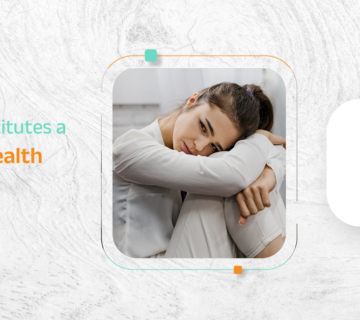Ever thought about being an introvert or facing depression? It’s easy to confuse both, as their traits overlap. Yet, they have distinct differences.
We will help you learn how to tell if you are introverted or depressed, and how to recognize the signs of both. We’ll discuss the characteristics of an introvert and depression, and how to tell them apart.
Grace Health Care is ready to aid you in combating depression. Understand how to spot the signs and move toward healing. Contact us today.
What Is Introversion and what is Depression?
Let’s get clear on these terms before we dig into their differences. Being an introvert, alone time amps you up. Introverts typically like calmer settings and smaller groups. However, this doesn’t mean they are gloomy or hopeless.
Depression impacts your mind. It influences your feelings, thoughts, and entire wellness. It’s not just typical sadness, it’s a constant tide of feeling down.
Characteristics of an Introvert
Introverts have unique characteristics that make them stand out. Let’s see a few of these:
- Enjoying Solitude: An introverted person relishes their alone time. It helps them unwind and renew their energy.
- Avoiding Big Crowds: For an introvert, enormous gatherings are exhausting. They are more at ease in intimate settings or duo interactions.
- Reflecting Deeply: Introverts are profound thinkers. They frequently choose to deliberate on their thoughts, resisting spontaneous actions.
- Energy Depletion after Socializing: An introvert may feel worn out after a long social event. They need alone time to recover.
Many introverted people have these traits. So, don’t mistake them for signs of depression. Still, if intense sadness or no drive persists in you, it might point toward depression. Let’s dive into how we can distinguish between the two.
How to Tell if You Are Introverted or Depressed
It can be tricky to tell if you are introverted or depressed. Both show a preference for solitude. Yet, notable contrasts exist between these two conditions.
-
Feeling Drained vs. Feeling Hopeless
- Introverts: Introverts find energy in solitude. Social events might drain them, yet they rejuvenate alone, feeling satisfied.
- Depressed Individuals: Depression goes beyond fatigue. A depressed person might feel constantly exhausted, irrespective of rest. Feelings of despair, void, and an aversion to even minimal tasks might consume them. For introverts with depression, solitude becomes a gloomy, hopeless time.
-
Loss of Interest in Hobbies
- Introverts: Those who are a bit introverted can enjoy reading, painting, or walking. However, they often prefer engaging in these activities solo.
- Depressed Individuals: Depression often takes away the happiness from activities we used to love. If you’re not enjoying your favorite things anymore, it might be depression rather than simply being introverted.
-
The Emotions You Feel
- Introverts: Picture someone who loves the quiet and serenity of their home. That’s an introvert.
- Depressed Individuals: Now, imagine someone who stays in, not out of joy, but due to feelings of disconnection, sadness, or a lack of hope. They could be dealing with depression.
Signs of Depression in Introverts
Sometimes, it is hard to spot depression in introverts. They love their solitude. But we can spot certain markers that signal something beyond mere introversion:
- Persistent Sadness: Depression is hinted at when you feel sad all the time, no matter if you’re alone or not. While introverts may enjoy quiet time, depression makes it sad.
- Constant Fatigue: If you’re very introverted, socializing could tire you out. But with depression, you feel extremely tired, and resting doesn’t help.
- Negative Self-Thoughts: Depression can make you feel worthless or guilty too often. If that’s happening, it might be depression.
- Lack of Motivation: Depression may cause your low energy. It can make it hard to do daily chores or enjoy your hobbies.
Introverts and Depression: Recognizing the Overlap
Introverts and depression may cross paths, and realizing this is key. An introvert might usually enjoy solo time. But if that solo time starts feeling sad, lonely, or empty, it’s important to investigate further.
Is It Bad to Be an Introvert?
“Is it bad to be an introvert?” Not at all. It’s just a unique personality type. Introverts are typically imaginative. They’ve got keen insights. Plus, they’re usually great listeners. So, being introverted? Its okay, it’s fine.
Yet, it gets tricky when introversion teams up with depressive symptoms. One must identify when a desire for solitude becomes a troubling pattern. It may be more harmful than helpful.
What Causes Introversion vs. What Causes Depression?
Many people ask, “What causes introversion?” Introversion is typically linked to our genes and personal attributes. Some individuals are instinctively more reflective and enjoy serene surroundings.
In contrast, genes, brain chemicals, and tough times can trigger depression. So can constant stress. It isn’t like introversion, which is a personality characteristic. Instead, depression is a health issue that needs looking after and consideration.
How Do You Know if You Are an Introvert or Depressed?
Trying to discern if you’re introverted or depressed? Pose these questions to yourself:
- Do solitude sessions boost your spirits, or do they leave you feeling down and alone?
- Are your hobbies still fun for you, or do they seem uninteresting?
- Does solitude bring calmness, or does it feel distressing?
If solitude triggers more sadness than happiness, it could indicate depression. For your mental health, it’s vital to tell introvert traits apart from depression symptoms.
Managing Depression as an Introvert
Are you dealing with introvert depression? It’s vital to get help. Here are some coping strategies:
- Talk about It: You may be an introvert. You may not like sharing your feelings. But, talking to a trusted person can help. This individual could be a friend, a relative, or a mental health professional.
- Seek Professional Help: Therapy proves significant for those grappling with introversion and depression. Therapists help you find healthy ways to cope. They offer support and spare you from unwanted social situations.
- Self-care: Your solitary moments should be invested in joyful activities. For introverts, self-care is vital. It must be energizing, not excluding.
- Stay Connected: Avoid large social gatherings, but keep a few deep connections. A quick call or coffee with a friend can help a lot.
Finding Balance: Alone Time vs. Isolation
An introvert may prefer solitude, but endless isolation isn’t good. It’s key to find a middle ground between alone time and social interaction. If you’re wavering between being introverted or depressed, check your emotions. Feeling refreshed means you’re a healthy introvert. Yet, ongoing gloom and distance may suggest depression.
When to Seek Help for Depression?
If introspection leads to feeling low, like losing joy in hobbies, it’s necessary to reach out. There’s a way to treat feeling down or depressed, so remember, you don’t have to face it by yourself.
If you’re trying to see if it’s depression in introverts or something else, mental health pros can help. They can guide you in bettering your mental health. Therapy is pretty useful. It helps control negative thoughts. It also finds ways to reconnect with people in your way.
Conclusion
So, how to tell if you are introverted or depressed can be tricky. Both often involve a liking for alone time. Being an introvert is not a bad thing; a lot of people flourish with this personality type. But suppose your solitude begins to evoke feelings of emptiness or sadness. Or if you find no joy in stuff you used to love. It could indicate depression.
Spotting the signs of depression in introverts is vital for proper help. It’s fine to seek aid; every person, chatty or quiet, should experience joy and satisfaction in life. Depression may cause loneliness, but remember, you’re not alone. In tough times, an expert can help you understand your feelings and find a way to improve.
FAQs
1. Can being introverted lead to depression?
Introversion doesn’t directly cause depression. But if an introvert feels alone or disconnected, the risk increases. Introverts must strike a balance between alone time and valuable social links.
2. How do I know if I need help for depression?
If you often feel down, lose interest, or feel hopeless, it may help to talk to a mental health expert. You can beat depression, and reaching out is your first move toward happier days.







No comment